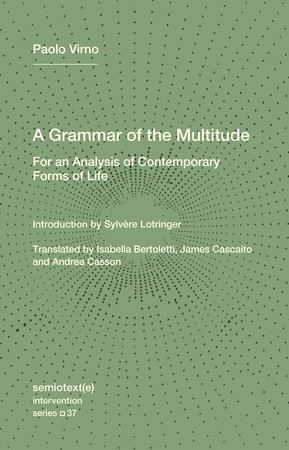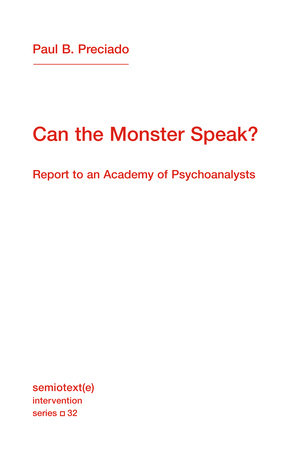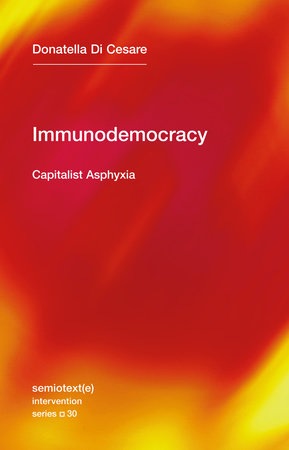
A Grammar of the Multitude
For an Analysis of Contemporary Forms of Life
Paolo Virno; introduction by Sylvère Lotringer; translated by Isabella Bertoletti, James Cascaito, and Andrea Casson
Paperback
August 12, 2025 | ISBN 9781635902204
AmazonBarnes & NobleBooks A MillionBookshop.orgHudson BooksellersPowell'sTargetWalmart
About the Book
Paolo Virno’s A Grammar of the Multitude became the Italian theorist’s best-known work in English, influencing a generation of activists and performance artists, when it was first published by Semiotext(e) in 2004. Two decades later, this new edition proves Virno’s conception of contemporary life—as a cartography of virtualities made possible by post-Fordism—to have been strikingly prescient.
At the start of the twenty-first century, globalization forced a rethinking of some of the categories—such as “the people”—that had been traditionally associated with the now-eroding state. Virno argues that the category of “multitude,” elaborated by Spinoza and for the most part left fallow since the seventeenth century, is a far better tool to analyze contemporary issues than the Hobbesian concept of “people” favored by classical political philosophy. Hobbes, who detested the notion of multitude, defined it as shunning political unity, resisting authority, and never entering into lasting agreements. “When they rebel against the state,” Hobbes wrote, “the citizens are the multitude against the people.” But the multitude isn’t just a negative notion; it is a rich concept that allows us to examine anew plural experiences and forms of nonrepresentative democracy. Drawing from philosophy of language, political economics, and ethics, Virno shows that being foreign, “not-feeling-at-home-anywhere,” is a condition that forces the multitude to place its trust in the intellect. In conclusion, Virno suggests that the metamorphosis of the social systems in the West during the 1980s and 1990s precipitated a paradoxical “Communism of the Capital.”











